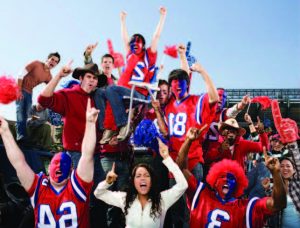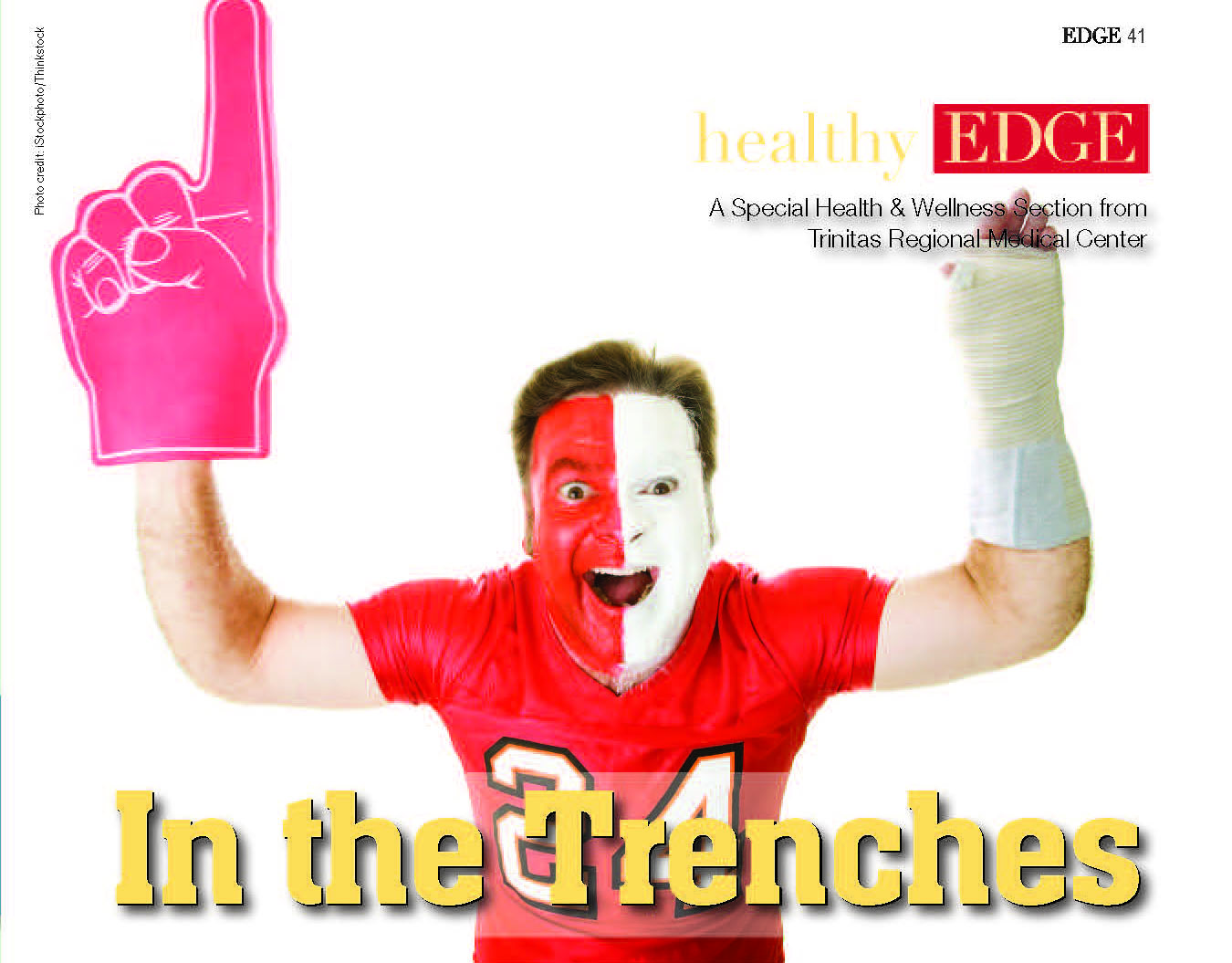The last line of defense at the Super Bowl is not what you think.
By Alison Hemstitch
You wouldn’t believe the things a “house doctor” sees at a football game. So says Dr. Kevin Lukenda, Chairman of the Family Medicine Department at TRMC. Dr. Lukenda has been working two to three events a month at the Meadowlands Sports Complex for a dozen years.

Photo credit: iStockphoto/Thinkstock
MetLife stadium holds 85,000 people including employees. When the stadium sells out a football game, concert or soccer match, it is essentially a small city with the same potential for 911 calls and problems that a city would encounter on any given day. The Meadowlands Sports Complex has its own EMS, Fire, Safety Services and Maintenance Departments, among others. The physician on duty for an event handles everyone’s medical problems—from colds to falls to life threatening situations such as heart attacks, strokes and diabetic emergencies. The staff also sees its share of stadium-exclusive issues, like moths dive bombing into the ear canals of guests sitting in the upper level near the lights.
So what does Dr. Lukenda consider a normal day at a New Jersey sporting event?
“Respiratory and cardiac issues are the normal fare,” he says. “Essentially our fans bring a full complement of their chronic illnesses with them to events at the Sports Complex, some of which are exacerbated by the weather, walking a distance into the buildings, or the food and beverage they consume at the tailgate parties they attend. Tailgate parties can be quite elaborate, fully catered affairs.”
The Meadowlands Sports Complex, which is owned by the state and managed by the New Jersey Sports and Exhibition Authority, is the only sports venue in the state that has its own Medical Team of physicians, nurses, EMTs and ambulances that are managed by a Medical Director, EMS Director and EMS Coordinator, who plans the EMS coverage for all the events.
For the Super Bowl, Dr. Lukenda was one of eight physicians stationed in various medical rooms throughout the stadium. This job required the physicians and staff to have in-service training prior to each NFL game this season to prepare them for anything that might be thrown at them come the Super Bowl game.
Normally, Dr. Lukenda’s job is to administer to fans and employees, but after rock concerts, he is occasionally called upon to treat a performer. “Some of those guys leave it all out on the stage and come back to their dressing room spent or dehydrated,” he says (but won’t say who). “These acts go on tour and depending on how long they have been touring, they start to get ill from the long hours and the demands of the road. We are their on-the-road, so to speak, physicians. What a rush when you first get to treat a celebrity.”

Kevin Lukenda, DO Chairman, Family Medicine Department, TRMC 908.925.9309
Dr. Lukenda says, “I love working at the Sports Complex. It is a totally different feeling than the office and hospital. You get a bit of an adrenalin rush being so close to the action.”





